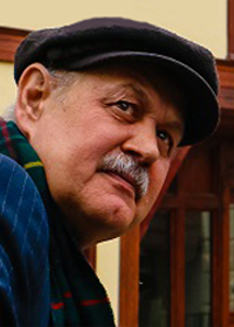Child Labor Problem And Intervention Programs In Developing Countries
The two ominous problems of the developing countries are poverty and lack of tools to combat it. Our surveys reveal that economic needs and uncertainties about the future are the most important factors driving children to working life at very early ages. Thus, leaving aside the most intolerable forms of employment (all forms of slavery and practices similar to slavery such as the sale and trafficking of children, forced or compulsory labor, debt bondage and serfdom; the use, engagement or offering of a child in illegal activities, for prostitution, production of pornography or pornographic performances; hazardous works, etc.) most children state that it is their own choice to work. In any case, they have no other choice. Another factor which pushes children to work is unemployment or restraints on the creation of new jobs. In adulthood, holding a decent job which brings enough to make a fair living and which does not pose any health threat is unfortunately a dream which may come true only for a small minority of the children of the developing world. That is what we define as the “lack of tools to combat poverty.” Since there is no help from the society in this struggle, each individual has to find his or her own way. And indeed, that is what the child actually does starting from very early ages. But there is one thing that the child does not know or see: what he or she losses while working. First of all, childhood is lost. The child has to behave as adults in work discipline throughout longer and longer working hours. What is actually lost is personality, self-confidence and imaginative power which could have been built otherwise through plays and companionship with peers. Since working environments lack even those vital conditions necessary for adult workers, child workers further face the risk of hearing loss due to noise, lung diseases caused by dusty-smoky environments, blood and nervous system damages stemming from such materials as paint, thinner, etc. and emergence of genetoxicity from polycyclic aromatic hydrocarbons. So, health is another loss.In Turkey, there is growing interest in the issue of child workers especially after the International Year of the Child in 1979. In particular, the IPEC programme which was initiated in Turkey along with 5 other developing countries with the ILO support was a cornerstone in terms of placing the issue in the agenda of all organised sections of the society. In this context, there are two intervention programme groups. The first is the extension of health and other social services to working children and improvement of their working environments. The second is the withdrawal of children from working life through improving the income status of their families.We name the first one, extension of health and social services to working children, as “VEFA project” (faithfulness). This is because we think that the society does injustice by creating two groups in terms of the utilisation of available resources: those who are enrolled to school and others who work, both at same ages. Hence, it is an act of faith to transfer as much resources to working children as what is allocated to children in school. And for this resource transfer, we propose improved extension of health-social services which is to be shaped in line with the FISEK model. As far as the enhancement of income generating opportunities for families is concerned, there are efforts waged particularly in rural areas. These efforts aim at creating new agricultural employment without taking the family and the child apart from their village and in a way to eventually deem child labor unnecessary. There are various intervention models tried for working children in other developing countries as well. Yet, the following principle is accepted almost everywhere: “It is impossible to save working children from work in one stroke; what is to be done is to take measures which will deem child labor unnecessary in the long run while protecting those who are presently working.”
The 4th Congress of Toxicology in Developing Countries (November 6-10, 1999 Antalya)
